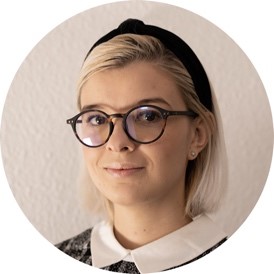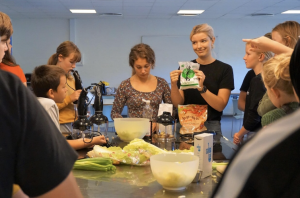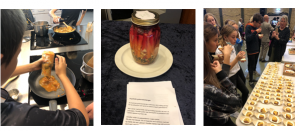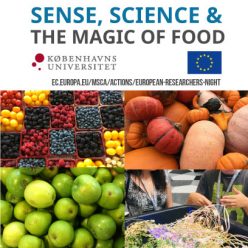And can we teach kids about that as part of education for climate mitigation and sustainability?
 By Dominika Nemeth.
By Dominika Nemeth.
Young people are key to green food systems transformation. And so are their understanding of science and digital technologies. In the SESAM programme we aim to create interest among young people at school about the role of science in society. And in this case about food science. Right now the four SESAM schools 4 in Hvidovre, Ganløse, Herstedlund and Sorø are working full speed to be ready for the final SESAM events on November 27 and November 28, 2020. And the art and science of fermentation is an important case.
As an intern, from Global Nutrition and Health program I have been assisting the school in developing the activities around science and fermentation. The idea has been to implement activities that are highly interactive and involve students in the developmental phase.

Is science needed to cut food waste?
Food waste is a raising issue worldwide and about 1.3 million tons of food is being wasted every year. (FAO, 2015) This has a huge impact on the environment, health and economics. (FAO, 2015) Therefore, this problem was one of the main focuses of my internship project for SESAM. As the recent Covid-19 pandemic approached we had limited time for implementation, but a fairly good amount of time for planning. The project planning started in late May and early June. We got in contact with the schools via Zoom and we could arrange several face-to-face meetings.
As SESAM interns we have worked closely with teachers and the school provided the place, equipment, and supervision over the workshops. In exchange, the workshops have provided knowledge and skills for the children. Teacher collaboration was crucial to our work and they were extremely helpful for the planning process. To plan the workshops, we aimed to prioritize the learning-by-doing principle based on a problem-based learning framework in order to foster learning, creativity, and digital thinking.
The activities consist of a combination of demonstrations of scientific/technical equipment that is used for collecting scientific data on behaviour and sensory responses in relation to food. Moreover, the workshops consisted of presentations, talks, brainstorming sessions, creating mind-maps and taking over the kitchen to cook up some science. Our kitchen exercises were focused on fermentation processes. For example the fermentation of cabbage for food waste prevention as a preservation method. The students could investigate changing variables such as pH and temperature during the fermentation period and develop their own research. In general the SESAM program is founded on the idea that young peoples science and research based solutions are important and it conveys the message that we are all researchers and put special emphasis on exploring the reach of citizen science and crowdsourcing of data. However, the most important stakeholders are always the children, as environmental issues are endangering their futures and they need to learn how to deal with it at an early age.

The SESAM project is part EU MSCA Researchers Night program and has received funding from the European Union’s Horizon 2020 research and innovation programme under grant agreement No 955400.
Dominika Nemeth, Global Nutrition and Health BSc (Semester 7) Student intern for København University- project SESAM. Passionate about academic research, food, nutrition, public health and health promotion.
